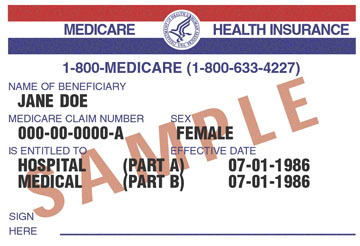Chapter 12 of the “Medicare Claims Processing Manual” (Medicare Billing Bible) is about to change to reflect deleted and/or corrected information as it relates to Claims Processing Instructions for Non-Physician Practitioners (NPPs), i.e., Physicians Assistants (PAs), Nurse Practitioners (NPs), Clinical Nurse Specialists (CNSs), Clinical Psychologists (CPs), and Clinical Social Workers (CSWs) submitting claims to Medicare contractors (carriers and A/B Medicare Administrative Contractors (MACs)) for services to Medicare beneficiaries.
These changes are effective February 19, 2013.
Key manual revisions/updates are as follows:
- NPP assistant-at-surgery services should be billed with the “AS” modifier only.
- The health professional shortage area (HPSA) payment modifiers, “QB” and “QU” have been eliminated because they are no longer valid.
- The “AH” modifier for CPs and, the “AJ” modifier for CSWs have been eliminated because they are no longer necessary for identification purposes.
- The correct payment amount for the professional services of PAs, NPs and CNSs is 80 percent of the lesser of the actual charge or, 85 percent of what a physician is paid under the Medicare Physician Fee Schedule (MPFS.)
- Additionally, the correct payment amount for assistant-at-surgery services furnished by PAs, NPs and CNSs is 80 percent of the lesser of the actual charge or, 85 percent of 16 percent of what a physician is paid under the MPFS for surgical services.
- Procedures billed with the assistant-at-surgery physician modifiers -80, -81, -82, or the AS modifier for physician assistants, nurse practitioners and clinical nurse specialists, are subject to the assistant-at-surgery policy. Accordingly, Medicare will pay claims for procedures with these modifiers only if the services of an assistant-at-surgery are authorized.
- Medicare’s policies on billing patients in excess of the Medicare allowed amount apply to assistant-at-surgery services.
- When a PA, NP, or CNS furnishes services to a patient during a global surgical period, Medicare contractors shall determine the level of PA, NP, or CNS involvement in furnishing part of the surgeon’s global surgical package consistent with their current practice for processing such claims.
- Billing requirements and adjudication of claims requirements for global surgeries are under chapter 12, sections 40.2 and 40.4 of the “Medicare Claims Processing Manual.”
- PAs, NPs, and CNSs must have their own “non-physician practitioner” national provider identification number (NPI) number. This NPI is used for identification purposes only when billing for PA, NP, or CNS services, because only an appropriate PA, NP, or CNS employer or, a provider/supplier for whom the PA, NP, or CNS furnishes services as an independent contractor can bill for PA, NP, or CNS services. Specialty code 97 applies for PAs enrolled in Medicare. NPs enrolling in Medicare use specialty code 50 and CNSs use specialty code 89.


